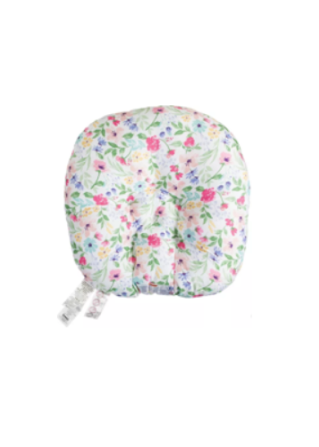News Investigation Uncovers More Baby Deaths From Infant Loungers
Editors carefully fact-check all Consumer Notice, LLC content for accuracy and quality.
Consumer Notice, LLC has a stringent fact-checking process. It starts with our strict sourcing guidelines.
We only gather information from credible sources. This includes peer-reviewed medical journals, reputable media outlets, government reports, court records and interviews with qualified experts.

A recent investigation by NBC News into padded infant pillows, like the recalled Boppy Newborn Lounger, found that more than two dozen babies have died in incidents linked to similar products since 2015. That far exceeds the number of deaths reported by the Consumer Product Safety Commission.
“NBC News determined that at least 21 other babies died in infant loungers from December 2015 through September 2021, more than twice as many deaths as the [Consumer Product Safety Commission] cited in public warnings about specific brands of loungers,” the news agency reported in its “Death by Delay” series about consumer products’ deadly hazards.
NBC News tallied the number of infant deaths after reviewing government data, court documents, public reports by the CPSC, medical examiners’ reports and records obtained by the news agency.
![]()
Boppy Newborn Lounger Recalled in 2021
In 2021, the CPSC recalled the Boppy Newborn Lounger, a pillow-like product that allowed infants to sit at a slightly elevated angle, after it was linked to the suffocation deaths of eight infants. Consumers who purchased the cushioned infant lounger unknowingly exposed their children to life-threatening dangers. The lounger was not marketed as an infant sleep product and warned against unsupervised use, the CPSC recall alert stated.
After the recall, parents whose children were injured or killed after using a recalled lounger began filing Boppy Newborn Lounger lawsuits against The Boppy Company.
Boppy had sold more than 3 million of the harmful products in stores and online before the recall, but it wasn’t the only cushioned infant lounger on the market. A similar product, the Fisher-Price Rock ‘n Play Sleeper, was recalled after mounting infant deaths. The company is the target of numerous Rock ‘n Play lawsuits.
“It wasn’t just one manufacturer’s infant lounger that posed a potentially lethal threat; the agency [CPSC] next planned to consider sweeping regulation of other cushioned infant loungers, which some experts and officials believed were just as unsafe as the Boppy Lounger,” NBC News reported.
![]()
CPSC Opted for Research Over Removal
Regulation of infant loungers could have forced a redesign or a removal of those types of products from the market, current and former CPSC employees, industry representatives and safety advocates told NBC News. But shortly after the 2021 recall, the proposal for regulating infant pillows was scrapped. Instead, the agency called for a research study on infant pillows that included both infant loungers and nursing pillows. It then took enforcement action against individual makers instead of effecting changes industry-wide.
Despite the Boppy recall, babies have continued to die. At least five infants have died in incidents linked to baby loungers since September 2021, including a 3-month-old boy who died four days after the recall, NBC reported. In spring 2022 another infant died from asphyxiation in a different infant lounger made in China that was advertised on Amazon as “perfect for co-sleeping,” NBC News reported.
Risks of Padded Loungers and Pillows
The biggest risk of Boppy Newborn Loungers and similar products is suffocation, also called positional asphyxia. Suffocation can happen when the baby’s head falls back or forward or if they move into a position that obstructs their breathing while using the product.
The American Academy of Pediatrics warns that there are risks associated with many pillow-like products for babies and even car seats, which should only be used for travel and not for feeding or sleeping. While the CPSC closely regulates baby sleep products, loungers are not included because they are advertised for use by babies who are awake, not asleep. However, babies can quickly fall asleep and parents are often hesitant to move a sleeping child.
“You can’t put that burden on parents,” CPSC Chair Alex Hoehn-Saric said in a recent interview with NBC News. “If you have a product that looks like it’s good for sleep, you can’t claim that it’s not a sleep product.”
The American Academy of Pediatrics’ safe sleep guidelines recommend babies sleep on their backs on a firm, flat mattress in a crib or bassinet with no loose blankets, pillows, crib bumpers or other soft items.